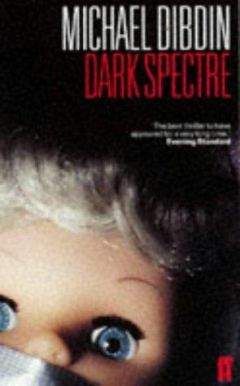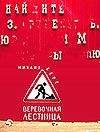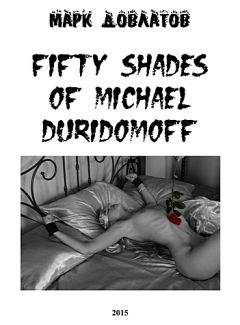Michael Ondaatje - The English Patient
“My father had a bird, a small swift I think, that he kept beside him, as essential to his comfort as a pair of spectacles or a glass of water during a meal. In the house, even if he just was entering his bedroom he carried it with him. When he went to work the small cage hung off the bicycle’s handlebars.”
“Is your father still alive?”
“Oh, yes. I think. I’ve not had letters for some time. And it is likely that my brother is still in jail.”
He keeps remembering one thing. He is in the white horse. He feels hot on the chalk hill, the white dust of it swirling up all around him. He works on the contraption, which is quite straightforward, but for the first time he is working alone. Miss Morden sits twenty yards above him, higher up the slope, taking notes on what he is doing. He knows that down and across the valley Lord Suffolk is watching through the glasses.
He works slowly. The chalk dust lifts, then settles on everything, his hands, the contraption, so he has to blow it off the fuze caps and wires continually to see the details. It is hot in the tunic. He keeps putting his sweating wrists behind himself to wipe them on the back of his shirt. All the loose and removed parts fill the various pockets across his chest. He is tired, checking things repetitively. He hears Miss Morden’s voice. “Kip?” “Yes.” “Stop what you’re doing for a while, I’m coming down.” “You’d better not, Miss Morden.” “Of course I can.” He does up the buttons on his various vest pockets and lays a cloth over the bomb; she clambers down into the white horse awkwardly and then sits next to him and opens up her satchel. She douses a lace handkerchief with the contents of a small bottle of eau de cologne and passes it to him. “Wipe your face with this. Lord Suffolk uses it to refresh himself.” He takes it tentatively and at her suggestion dabs his forehead and neck and wrists. She unscrews the Thermos and pours each of them some tea. She unwraps oil paper and brings out strips of Kipling cake.
She seems to be in no hurry to go back up the slope, back to safety. And it would seem rude to remind her that she should return. She simply talks about the wretched heat and the fact that at least they have booked rooms in town with baths attached, which they can all look forward to. She begins a rambling story about how she met Lord Suffolk. Not a word about the bomb beside them. He had been slowing down, the way one, half asleep, continually rereads the same paragraph, trying to find a connection between sentences. She has pulled him out of the vortex of the problem. She packs up her satchel carefully, lays a hand on his right shoulder and returns to her position on the blanket above the Westbury horse. She leaves him some sunglasses, but he cannot see clearly enough through them so he lays them aside. Then he goes back to work. The scent of eau de cologne. He remembers he had smelled it once as a child. He had a fever and someone had brushed it onto his body.
VIII
The Holy Forest
KIP WALKS OUT of the field where he has been digging, his left hand raised in front of him as if he has sprained it.
He passes the scarecrow for Hana’s garden, the crucifix with its hanging sardine cans, and moves uphill towards the villa. He cups the hand held in front of him with the other as if protecting the flame of a candle. Hana meets him on the terrace, and he takes her hand and holds it against his. The ladybird circling the nail on his small finger quickly crosses over onto her wrist.
She turns back into the house. Now her hand is held out in front of her. She walks through the kitchen and up the stairs.
The patient turns to face her as she comes in. She touches his foot with the hand that holds the ladybird. It leaves her, moving onto the dark skin. Avoiding the sea of white sheet, it begins to make the long trek towards the distance of the rest of his body, a bright redness against what seems like volcanic flesh.
In the library the fuze box is in midair, nudged off the counter by Caravaggio when he turned to Hana’s gleeful yell in the hall. Before it reaches the floor Kip’s body slides underneath it, and he catches it in his hand.
Caravaggio glances down to see the young man’s face blowing out all the air quickly through his cheeks.
He thinks suddenly he owes him a life.
Kip begins to laugh, losing his shyness in front of the older man, holding up the box of wires.
Caravaggio will remember the slide. He could walk away, never see him again, and he would never forget him. Years from now on a Toronto street Caravaggio will get out of a taxi and hold the door open for an East Indian who is about to get into it, and he will think of Kip then.
Now the sapper just laughs up towards Caravaggio’s face and up past that towards the ceiling.
“I know all about sarongs.” Caravaggio waved his hand towards Kip and Hana as he spoke. “In the east end of Toronto I met these Indians. I was robbing a house and it turned out to belong to an Indian family. They woke from their beds and they were wearing these cloths, sarongs, to sleep in, and it intrigued me. We had lots to talk about and they eventually persuaded me to try it. I removed my clothes and stepped into one, and they immediately set upon me and chased me half naked into the night.”
“Is that a true story?” She grinned.
“One of many!”
She knew enough about him to almost believe it. Caravaggio was constantly diverted by the human element during burglaries. Breaking into a house during Christmas, he would become annoyed if he noticed the Advent calendar had not been opened up to the date to which it should have been. He often had conversations with the various pets left alone in houses, rhetorically discussing meals with them, feeding them large helpings, and was often greeted by them with considerable pleasure if he returned to the scene of a crime.
She walks in front of the shelves in the library, eyes closed, and at random pulls out a book. She finds a clearing between two sections in a book of poetry and begins to write there.
He says Lahore is an ancient city. London is a recent town compared with Lahore. I say, Well, I come from an even newer country. He says they have always known about gunpowder. As far back as the seventeenth century, court paintings recorded fireworks displays.
He is small, not much taller than I am. An intimate smile up close that can charm anything when he displays it. A toughness to his nature he doesn’t show. The Englishman says he’s one of those warrior saints. But he has a peculiar sense of humour that is more rambunctious than his manner suggests. Remember “I’ll rewire him in the morning.” Ooh la la!
He says Lahore has thirteen gates—named for saints and emperors or where they lead to.
The word bungalow comes from Bengali.
At four in the afternoon they had lowered Kip into the pit in a harness until he was waist-deep in the muddy water, his body draped around the body of the Esau bomb. The casing from fin to tip ten feet high, its nose sunk into the mud by his feet. Beneath the brown water his thighs braced the metal casing, much the way he had seen soldiers holding women in the corner of NAAFI dance floors. When his arms tired he hung them upon the wooden struts at shoulder level, which were there to stop mud collapsing in around him. The sappers had dug the pit around the Esau and set up the wood-shaft walls before he had arrived on the site. In 1941, Esau bombs with a new Y fuze had started coming in; this was his second one.
It was decided during planning sessions that the only way around the new fuze was to immunize it. It was a huge bomb in ostrich posture. He had come down barefoot and he was already sinking slowly, being caught within the clay, unable to get a firm hold down there in the cold water. He wasn’t wearing boots—they would have locked within the clay, and when he was pulleyed up later the jerk out of it could break his ankles.
He laid his left cheek against the metal casing, trying to think himself into warmth, concentrating on the small touch of sun that reached down into the twenty-foot pit and fell on the back of his neck. What he embraced could explode at any moment, whenever tumblers tremored, whenever the gaine was fired. There was no magic or X ray that would tell anyone when some small capsule broke, when some wire would stop wavering. Those small mechanical semaphores were like a heart murmur or a stroke within the man crossing the street innocently in front of you.
What town was he in? He couldn’t even remember. He heard a voice and looked up. Hardy passed the equipment down in a satchel at the end of a rope, and it hung there while Kip began to insert the various clips and tools into the many pockets of his tunic. He was humming the song Hardy had been singing in the jeep on the way to the site—
They’re changing guard at Buckingham Palace—
Christopher Robin went down with Alice.
He wiped the area of fuze head dry and began moulding a clay cup around it. Then he unstopped the jar and poured the liquid oxygen into the cup. He taped the cup securely onto the metal. Now he had to wait again.
There was so little space between him and the bomb he could feel the change in temperature already. If he were on dry land he could walk away and be back in ten minutes. Now he had to stand there beside the bomb. They were two suspicious creatures in an enclosed space. Captain Carlyle had been working in a shaft with frozen oxygen and the whole pit had suddenly burst into flames. They hauled him out fast, already unconscious in his harness.
Where was he? Lisson Grove? Old Kent Road?
Kip dipped cotton wool into the muddy water and touched it to the casing about twelve inches away from the fuze. It fell away, so it meant he had to wait longer. When the cotton wool stuck, it meant enough of the area around the fuze was frozen and he could go on. He poured more oxygen into the cup.
The growing circle of frost was a foot in radius now. A few more minutes. He looked at the clipping someone had taped onto the bomb. They had read it with much laughter that morning in the update kit sent to all bomb disposal units.
When is explosion reasonably permissible?
If a man’s life could be capitalized as X, the risk at Y, and the estimated damage from explosion at V, then a logician might contend that if V is less than X over Y, the bomb should be blown up; but if V over Y is greater than X, an attempt should be made to avoid explosion in situ.
Who wrote such things?
He had by now been in the shaft with the bomb for more than an hour. He continued feeding in the liquid oxygen. At shoulder height, just to his right, was a hose pumping down normal air to prevent him from becoming giddy with oxygen. (He had seen soldiers with hangovers use the oxygen to cure headaches.) He tried the cotton wool again and this time it froze on. He had about twenty minutes. After that the battery temperature within the bomb would rise again. But for now the fuze was iced up and he could begin to remove it.
He ran his palms up and down the bomb case to detect any rips in the metal. The submerged section would be safe, but oxygen could ignite if it came into contact with exposed explosive. Carlyle’s flaw. X over Y. If there were rips they would have to use liquid nitrogen.
“It’s a two-thousand-pound bomb, sir. Esau.” Hardy’s voice from the top of the mud pit.
“Type-marked fifty, in a circle, B. Two fuze pockets, most likely. But we think the second one is probably not armed. Okay?”
They had discussed all this with each other before, but things were being confirmed, remembered for the final time.
“Put me on a microphone now and get back.”
“Okay, sir.”
Kip smiled. He was ten years younger than Hardy, and no Englishman, but Hardy was happiest in the cocoon of regimental discipline. There was always hesitation by the soldiers to call him “sir,” but Hardy barked it out loud and enthusiastically.
He was working fast now to prise out the fuze, all the batteries inert.
“Can you hear me? Whistle.… Okay, I heard it. A last topping up with oxygen. Will let it bubble for thirty seconds. Then start. Freshen the frost. Okay, I’m going to remove the dam.… Okay, dam gone.”
Hardy was listening to everything and recording it in case something went wrong. One spark and Kip would be in a shaft of flames. Or there could be a joker in the bomb. The next person would have to consider the alternatives.
“I’m using the quilter key.” He had pulled it out of his breast pocket. It was cold and he had to rub it warm. He began to remove the locking ring. It moved easily and he told Hardy.
“They’re changing guard at Buckingham Palace,” Kip whistled. He pulled off the locking ring and the locating ring and let them sink into the water. He could feel them roll slowly at his feet. It would all take another four minutes.
“Alice is marrying one of the guard. ‘A soldier’s life is terrible hard,’ says Alice!”
He was singing it out loud, trying to get more warmth into his body, his chest painfully cold. He kept trying to lean back far enough away from the frozen metal in front of him. And he had to keep moving his hands up to the back of his neck, where the sun still was, then rub them to free them of the muck and grease and frost. It was difficult to get the collet to grip the head. Then to his horror the fuze head broke away, came off completely.
“Wrong, Hardy. Whole fuze head snapped off. Talk back to me, okay? The main body of the fuze is jammed down there, I can’t get to it. There’s nothing exposed I can grip.”
“Where is the frost at?” Hardy was right above him. It had been a few seconds but he had raced to the shaft.
“Six more minutes of frost.”
“Come up and we’ll blow it up.”
“No, pass me down some more oxygen.”
He raised his right hand and felt an icy canister being placed in it.
“I’m going to dribble the muck onto the area of exposed fuze—where the head separated—then I’ll cut into the metal. Chip through till I can grip something. Get back now, I’ll talk it through.”
He could hardly keep his fury back at what had happened. The muck, which was their name for oxygen, was going all over his clothes, hissing as it hit the water. He waited for the frost to appear and then began to shear metal off with a chisel. He poured more on, waited and chiselled deeper. When nothing came off he ripped free a bit of his shirt, placed it between the metal and the chisel, and then banged the chisel dangerously with a mallet, chipping off fragments. The cloth of his shirt his only safety against a spark. What was more of a problem was the coldness on his fingers. They were no longer agile, they were inert as the batteries. He kept cutting sideways into the metal around the lost fuze head. Shaving it off in layers, hoping the freezing would accept this kind of surgery. If he cut down directly there was always a chance he would hit the percussion cap that flashed the gaine.




